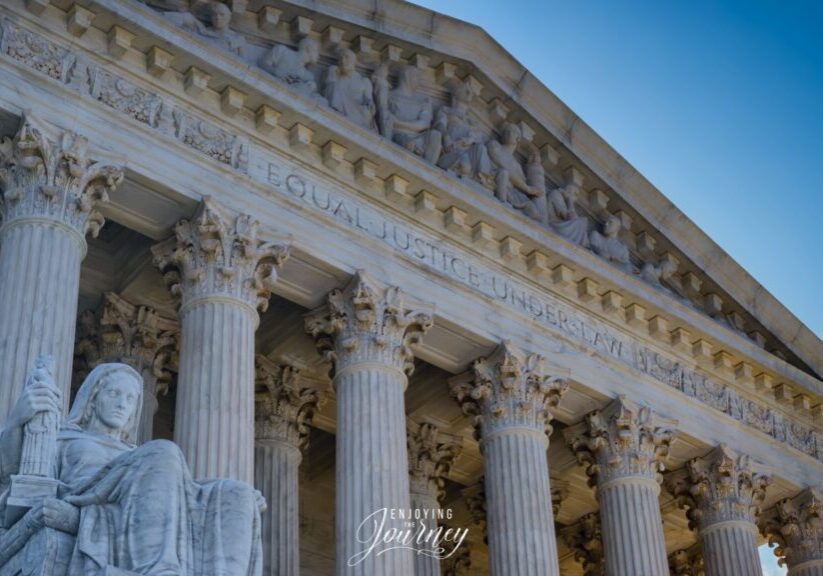
And it came to pass, when Saul was returned from following the Philistines, that it was told him, saying, Behold, David is in the wilderness of Engedi. Then Saul took three thousand chosen men out of all Israel, and went to seek David and his men upon the rocks of the wild goats. And he came to the sheepcotes by the way, where was a cave; and Saul went in to cover his feet: and David and his men remained in the sides of the cave” (I Samuel 24:1-3).
The canyons around the oasis of En Gedi are honeycombed with caves. As you hike into the park, you will see dozens and dozens of caves. However, God in His providence brought Saul to a certain cave as he pursued David into the hills of the wild goats. David and his men were hiding in the recesses of the cave when their unaccompanied enemy entered. David’s warriors urged him to strike down their persecutor, but David did not. Instead he crept forward and cut off the skirt, or in Hebrew the kanaf, of Saul’s robe. Then, when Saul left the cave, David followed him out and asked forgiveness for what he did. Then, in a startling turn of events, Saul did not attempt to capture or kill David.
Why would Saul lead a force into the Judean wilderness and then turn back when he cornered his enemy? The clue is in the word kanaf, the piece of cloth that David severed from Saul’s robe. Earlier, Saul was tasked with destroying the Amalekites (I Samuel 15). Instead of obeying God, he chose to save, among others, the King named Agag. In his fury at this disobedience, Samuel told Saul “the LORD hath rejected thee from being king over Israel.” Then, he turned to go, but a desperate King Saul grasped the skirt, the kanaf, of Samuel’s robe and it tore off in his hand. Samuel looked at his former protégé and prophesied “The Lord hath rent the kingdom of Israel from thee this day, and hath given it to a neighbour of thine, that is better than thou.” (I Samuel 15:28)
David exited the cave and said to King Saul “see the kanaf of your robe in my hand.” No doubt King Saul did not expect to see Samuel’s prophecy fulfilled in such a visceral and literal way. His avowed enemy, and God’s chosen king stood holding a torn kanaf. Even though he rebelled previously, and indeed subsequently, in that moment Saul did the right thing and let David go. He said to David humble words that echoed Samuel’s, “thou art more righteous than I.”
What happened in En Gedi among the rocks and wild goats teaches us several things as believers. David honored the position of God’s anointed, even when King Saul was not behaving honorably. Due to his obedience, God worked miraculously to save him from danger time and again. In fact, God used David to show kindness to the wayward King Saul. Has God delivered your enemy into your hands? Consider that God may have led your enemy to this spot to make His will plain to them? Perhaps God wants you to exact kindness on your persecutor instead of revenge?
“Dearly beloved, avenge not yourselves, but rather give place unto wrath: for it is written, Vengeance is mine; I will repay, saith the Lord. Therefore if thine enemy hunger, feed him; if he thirst, give him drink: for in so doing thou shalt heap coals of fire on his head. Be not overcome of evil, but overcome evil with good” (Romans 12:19-21).

Wild goat, or ibex, in the oasis of En Gedi. Saul pursued David and his men into the wild country here in the Great Rift Valley, some of which you can see in the background. Photo by John Buckner
Discover more from Enjoying the Journey
Subscribe to get the latest posts sent to your email.






